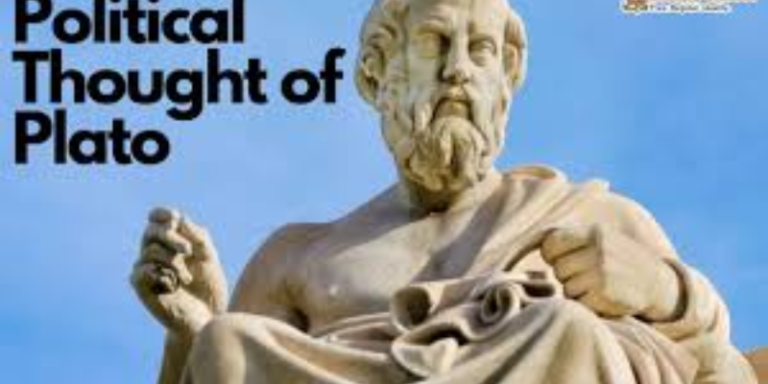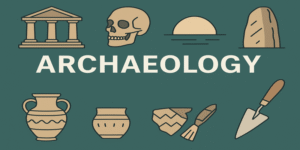Plato’s political theory, particularly articulated in his dialogues “The Republic” and “The Laws,” remains a cornerstone of Western political thought. His ideas about the nature of justice, the role of knowledge in governance, and the structure of the ideal state have shaped centuries of political philosophy. Central to his political theory is the vision of an ideal state, structured in a hierarchical but harmonious order designed to achieve justice and the common good. This vision of governance is guided by the rule of philosopher-kings, who are the only individuals deemed capable of leading with wisdom and virtue, due to their knowledge of higher philosophical truths.
The Ideal State and the Theory of Forms
At the heart of Plato’s political theory is his concept of the ideal state, which is deeply intertwined with his metaphysical ideas, particularly his theory of Forms. Plato proposed that beyond the physical world we perceive with our senses lies a realm of perfect, immutable, and eternal Forms or Ideas. The material world, in Plato’s view, is merely a shadow or imperfect reflection of this higher reality. Central to this system is the Form of the Good, which Plato describes as the ultimate principle. The Form of the Good is not only essential for understanding the nature of all other Forms, but it also represents the highest form of knowledge and the key to just and effective leadership.
In “The Republic,” Plato uses this metaphysical framework to build his ideal state. He argues that the state should mirror the tripartite structure of the human soul, which he divides into three parts: the rational, the spirited, and the appetitive (Plato, 1991). Corresponding to these divisions, the state itself is composed of three distinct classes: the ruling class, the auxiliaries, and the producers. Each class has a specific role, and the harmony of the state depends on each fulfilling its proper function.
The ruling class, made up of philosopher-kings, represents the rational part of the soul. According to Plato, only the philosopher-kings have the knowledge necessary to govern, as they alone are capable of grasping the Forms, especially the Form of the Good. Their wisdom allows them to create policies that promote the well-being of the entire state. The auxiliaries, or warriors, correspond to the spirited part of the soul. They are tasked with defending the state and enforcing the decisions of the philosopher-kings. Lastly, the producers, which include farmers, artisans, and merchants, represent the appetitive part of the soul. They are responsible for providing the material goods and services necessary for the state’s survival.
The Role of Philosopher-Kings
Plato’s concept of the philosopher-king is central to his political theory. He believed that only those who have ascended the educational ladder and gained an understanding of the Form of the Good are qualified to rule. This educational process, which includes rigorous training in philosophy, mathematics, and dialectic, ensures that philosopher-kings possess the knowledge and wisdom required for leadership. The philosopher-king, according to Plato, is uniquely suited to govern because their decisions are based on the highest form of knowledge rather than personal interests or desires (Annas, 1981).
Plato’s rationale for philosopher-kings stems from his distrust of ordinary human nature. He believed that most people are ruled by their appetitive desires and are incapable of making decisions that serve the common good. Without philosophical knowledge, Plato argued, rulers would inevitably be swayed by personal gain, ambition, or popular opinion, leading to injustice and discord within the state. This idea is vividly depicted in the famous Allegory of the Cave, found in Book VII of “The Republic” (Plato, 1991). In the allegory, prisoners are chained in a cave and can only see shadows cast on a wall, which they mistake for reality. Only a philosopher, who has escaped the cave and seen the light of the sun (representing the Form of the Good), is able to understand the true nature of reality and lead others out of ignorance.
Justice and the Common Good
For Plato, justice is both an individual and a social virtue. On an individual level, justice is achieved when each part of the soul performs its appropriate function in harmony with the others. The rational part of the soul must guide the individual, while the spirited and appetitive parts must follow its lead. When this internal balance is achieved, the individual lives a just and virtuous life.
Socially, justice is the harmony that arises when each class in the state performs its designated role without overstepping its bounds (Reeve, 1988). In Plato’s ideal state, the rulers govern, the auxiliaries protect, and the producers provide. Each class contributes to the common good according to its abilities and knowledge. This division of labour ensures that the state operates smoothly and justly, with each class fulfilling its necessary function.
The philosopher-king, as the ruler, is responsible for maintaining this harmony. Their knowledge of the Form of the Good allows them to craft laws and policies that reflect the true nature of justice. By promoting the common good, rather than the interests of a particular group or class, the philosopher-king ensures the well-being of all citizens (Cross & Woozley, 1964). In this way, Plato’s ideal state strives to create a society where justice is not only a political principle but a lived reality for every member of the state.
Criticisms of Plato’s Political Theory
Plato’s political theory, while influential, has not been without its critics. One of the main criticisms is that his ideal state is overly rigid and undemocratic. Plato’s vision of a hierarchical society, where a small group of philosopher-kings holds all political power, has been accused of being elitist and authoritarian. Karl Popper, in his book “The Open Society and Its Enemies,” famously accused Plato of laying the intellectual foundations for totalitarianism (Popper, 1945). Popper argued that Plato’s ideal state, with its emphasis on order, stability, and control, suppresses individual freedoms and is incompatible with the values of an open and democratic society.
Another criticism is that Plato’s ideal state does not account for the practical realities of human nature and political life. Critics argue that Plato’s emphasis on the philosopher-king assumes that the rulers will always be wise and virtuous, which may not be the case in reality. Furthermore, the idea that a small group of intellectuals should rule over the masses has been seen as paternalistic and disconnected from the democratic principle of equality.
Plato’s Legacy and Influence
Despite these criticisms, Plato’s political theory has had a profound and lasting influence on Western political thought. His vision of a just society, governed by wise and virtuous leaders, has inspired countless political thinkers and remains a foundational text in political philosophy courses worldwide. Plato’s emphasis on the role of knowledge and virtue in political leadership continues to provoke debate about what qualities are necessary for effective governance.
Plato’s political theory also raises important questions about the nature of justice, the role of the state, and the responsibilities of leaders. By linking political justice to a higher realm of knowledge, Plato sets a high standard for governance—one that transcends personal and class interests in pursuit of the common good. His work remains a seminal reference point for anyone grappling with the enduring questions of political philosophy.
In conclusion, Plato’s political theory, with its emphasis on philosopher-kings and the ideal state, offers a vision of governance that seeks to harmonise individual virtue and social justice. While his ideas may not align with contemporary democratic ideals, they continue to provide a rich source of reflection on the nature of power, authority, and the pursuit of the common good.
References:
Annas, J. (1981) An Introduction to Plato’s Republic. Clarendon Press.
Cross, R. C., & Woozley, A. D. (1964) Plato’s Republic: A Philosophical Commentary. Macmillan.
Waterfield, R. (1995) Plato (Translation of “The Republic”). Oxford University Press.
Popper, K. (1945) The Open Society and Its Enemies. Routledge.
Reeve, C. D. C. (1988) Philosopher-Kings: The Argument of Plato’s Republic. Princeton University Press.









